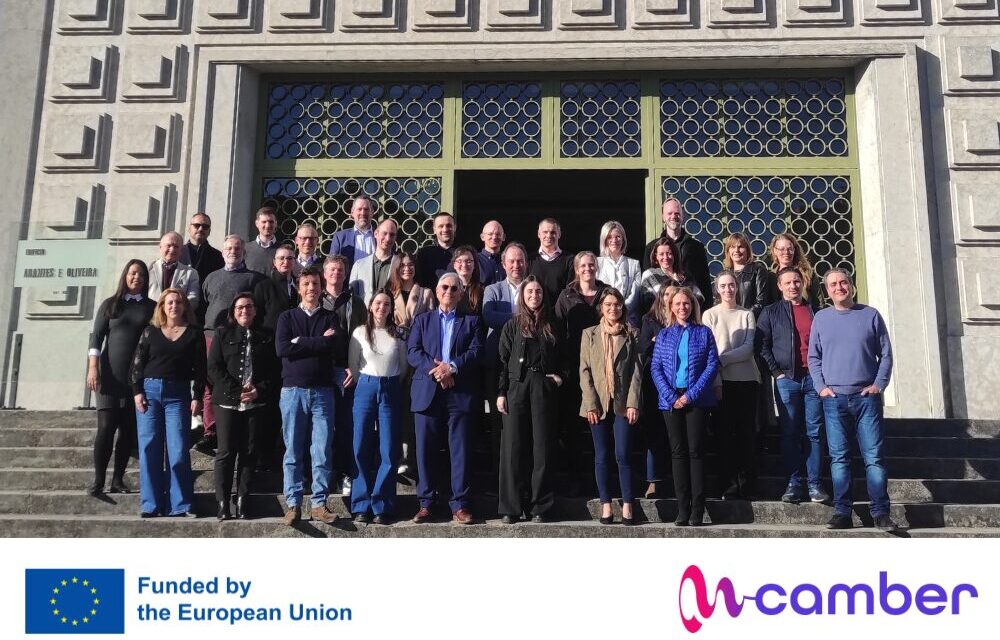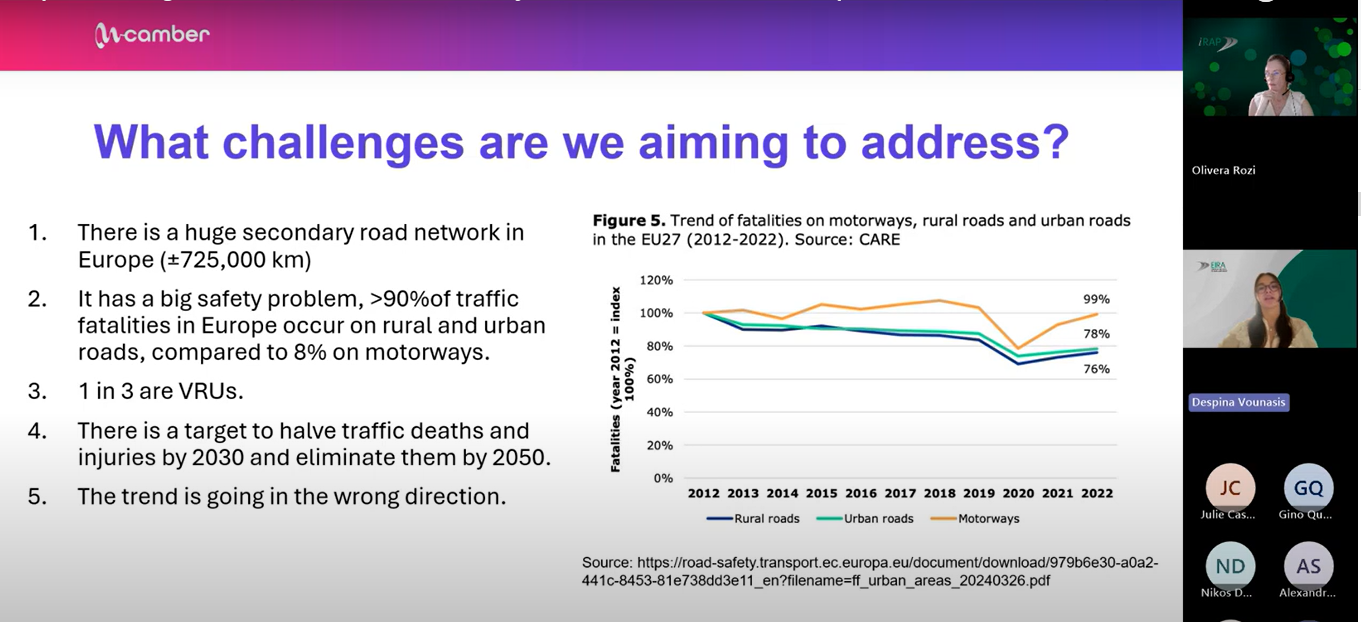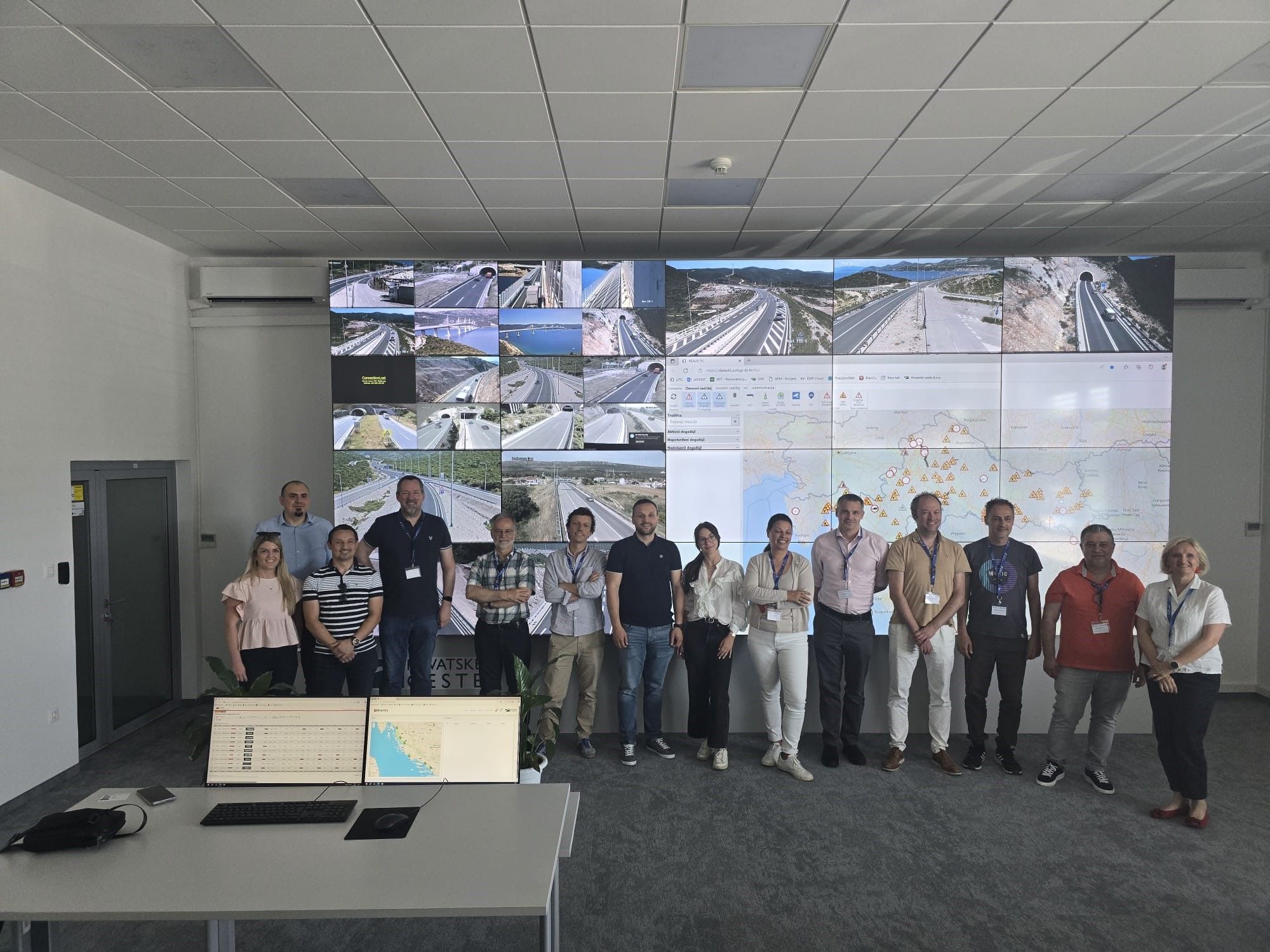The CAMBER project, dedicated to improving safety and maintenance on urban and secondary roads across Europe, officially launched on January 15-16, 2025, in Lisbon, Portugal. It brings together a consortium of 14 partners from nine countries across Europe, including research institutions, road authorities, and industry experts.
The Connected and Adaptive Maintenance for Safer Urban and Secondary Roads project (‘CAMBER’) is a three-year initiative funded by the European Union. It aims to address pressing challenges in road safety and infrastructure management by integrating real-time data insights with cost-effective solutions, innovative interventions, and digital technologies. The project will demonstrate its approaches through pilot sites in five European countries: Portugal, Greece, the Netherlands, Croatia, and Spain.
Europe’s dense network of urban and secondary roads, which plays a critical role in connecting communities, accounts for a significant proportion of traffic fatalities. These roads often face challenges such as inconsistent design standards, limited monitoring, and diverse road user needs, including vulnerable groups cyclists, pedestrians, and powered-two-wheelers. CAMBER seeks to tackle these issues by providing road managers with tools and methods to assess and improve road safety efficiently and effectively.
The project will use data from telematics, vehicle sensors, smartphones, and road user feedback to develop real-time safety assessments. This information will help road managers identify risks and prioritize maintenance tasks to create safer road environments. The project will create digital twins of road networks to simulate conditions and predict maintenance needs. These models will provide road managers with actionable insights, improving the efficiency of maintenance planning.
During the kick-off meeting, which was held at the National Laboratory for Civil Engineering (LNEC) in Lisbon, the project partners outlined the project’s objectives, key methodologies, and work plan for the next three years. Partners visited the city of Cascais, one of the project’s pilot sites, where they learned about local mobility initiatives and Cascais’ unique challenges and approaches applied to its road networks and mobility strategies.
CAMBER will evaluate and demonstrate practical, affordable safety measures, and develop guidance materials, performance criteria, and tools to assist road managers in integrating safety considerations into maintenance planning. These resources aim to make solutions accessible and adaptable for diverse road networks.
The project’s pilot sites will serve as testing grounds to validate its methods and solutions. By focusing on practical outcomes, CAMBER aims to provide road managers with reliable tools and knowledge to improve safety and maintenance in a cost-effective manner.
As CAMBER progresses, it promises to contribute valuable insights and solutions to help reduce traffic fatalities and enhance the safety of urban and secondary roads throughout Europe.



